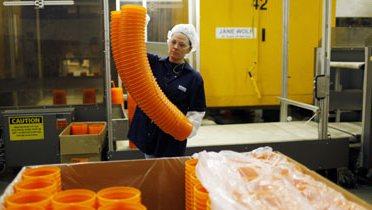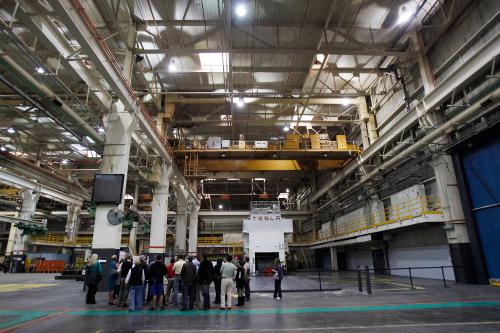When it comes to American manufacturing the U.S. media seems a bit confused. Last year, a bunch of stories (example here) argued that manufacturing job losses over the last decade don’t matter because productivity looks so good. Now, stories like this one are suggesting that manufacturing itself doesn’t matter much after all because the sector isn’t creating enough jobs. The current argument in vogue maintains that job growth figures just haven’t been robust enough in manufacturing to warrant policies that support the sector.
What the authors miss is mass employment is not the fundamental reason we need a healthy and vibrant manufacturing sector. Manufacturing—or rather advanced manufacturing—is essential to the U.S. economy because it is the main source of innovation and global competitiveness for the United States. Simply put, advanced manufacturing is the U.S. pipeline for new products and productivity-enhancing processes. While the sector makes up just 11 percent of the economy, manufacturers conduct 68 percent of private sector R&D, as reported by our colleagues Sue Helper and Howard Wial last year. And on average, they noted, 22 percent of manufacturers introduce new processes to increase productivity compared to just 8 percent of non-manufacturers. This is important because innovation that emerges from America’s manufacturing sector also fuels growth within the service sector because intermediary goods—the machines used by services (e.g. automated self check-out kiosks at grocery stores)—drive service sector productivity.
Some ask, meanwhile, why the nation should not simply import the advanced machinery needed for service-sector productivity. The problem with this argument is that services are, and will remain, largely non-traded. Regardless of how productive services become, the sector’s growth will be tethered to domestic demand. No amount of efficiency will allow a domestic grocery store to service international consumers. If the U.S. economy becomes one in which the U.S. imports all of the machinery that makes the service sector productive and no longer export any products of our own then inevitably we will consume more than we produce and incomes in services and manufacturing will decline. This is overwhelmingly clear in recent trade statistics. In 2012 manufacturing represented roughly 60 percent of U.S. exports despite only being 11 percent of the economy. By punching far about its weight class in exports the manufacturing sector is vital to U.S. global competitiveness.
In sum, the number of jobs within manufacturing is important, but taken by themselves employment figures miss the real reason manufacturing is an American imperative. U.S. quality of life, the ultimate benchmark of the direction of the economy, is contingent upon the competiveness of our traded sector and the speed at which innovative products and processes reach the market. On both metrics manufacturing is essential.









Commentary
Jobs Alone Do Not Explain the Importance of Manufacturing
April 3, 2013